Veteran diplomat Linda Thomas-Greenfield returns as Biden's pick for UN envoy
Her 35-year career took her around the world, far from where she grew up in La.
Linda Thomas-Greenfield had a busy holiday week.
The first media reports emerged a week ago Sunday that the retired U.S. ambassador was most likely President-elect Joe Biden's pick for envoy to the United Nations in New York. On Monday, the Biden transition confirmed the news and on Tuesday she joined Biden, Vice President-elect Kamala Harris and their new national security team on stage for a rollout.
But perhaps more telling of who this career diplomat is, is what Thomas-Greenfield did Wednesday and Thursday -- making and dropping off dinner for over a half dozen colleagues and friends who were alone for Thanksgiving, according to Jendayi Frazer.
"She has the X factor," said Frazer, who served as George W. Bush's ambassador to South Africa and assistant secretary of state for African affairs. "She's thinking about other people. She cares about them and she just has a warmness about her and a generosity … and that's where the X factor comes in."
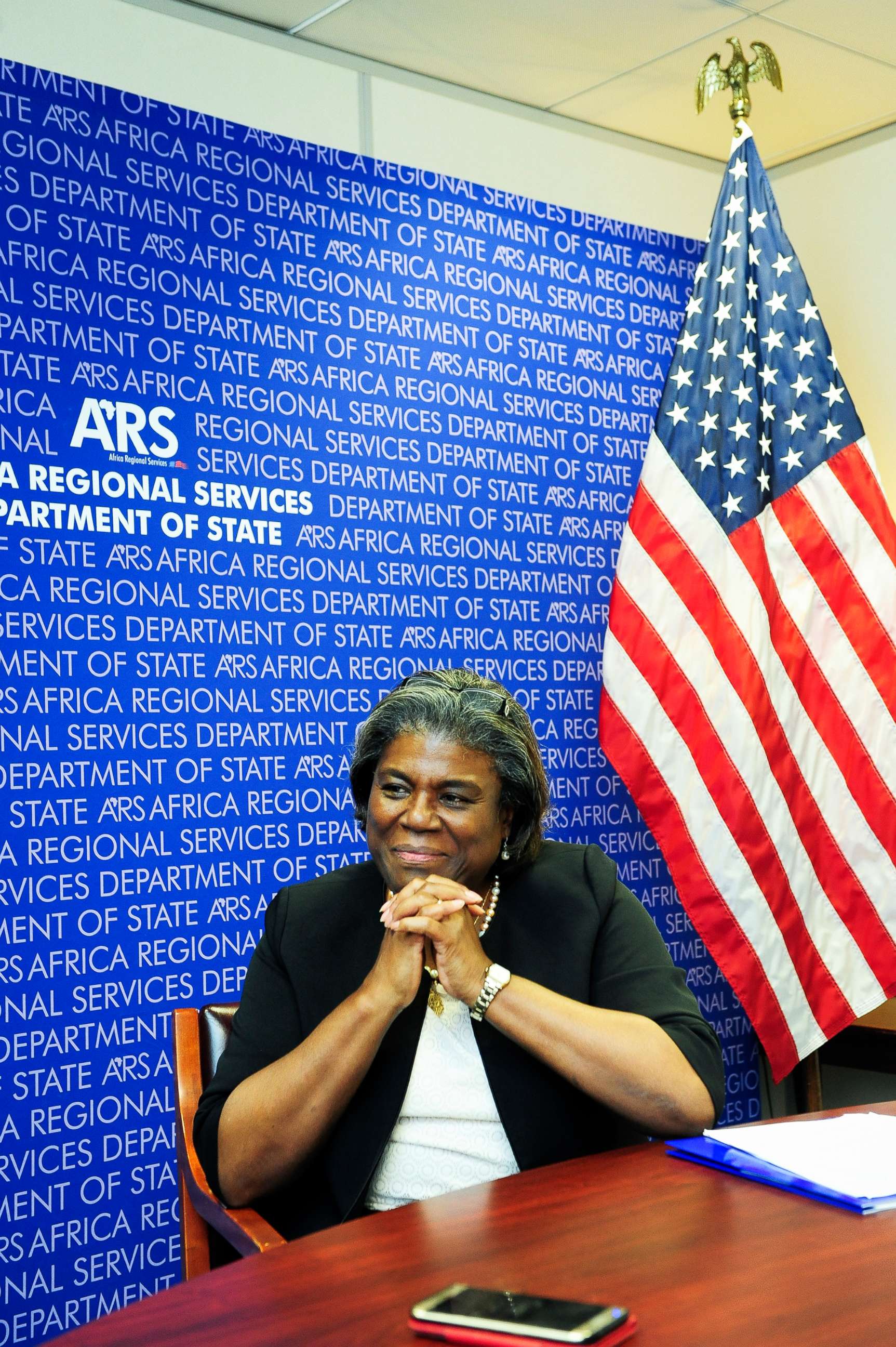
Thomas-Greenfield's nomination has been celebrated in the U.S. Foreign Service and among career diplomats, especially diplomats of color. In interviews with several officials who served with her or know her well, she's consistently described as warm, down to earth, sharp, seasoned and compassionate -- a unique brand that she calls "gumbo diplomacy."
"She's honestly like our Foreign Service mother," said a State Department official, who like many described Thomas-Greenfield as a mentor and requested anonymity to speak candidly.
"She is just the ideal. She is who you want to be. She's so competent and smart and compassionate and loving and kind," they added. "I'm almost getting emotional just thinking of having everyone know how amazing she is. She's been like our little secret."
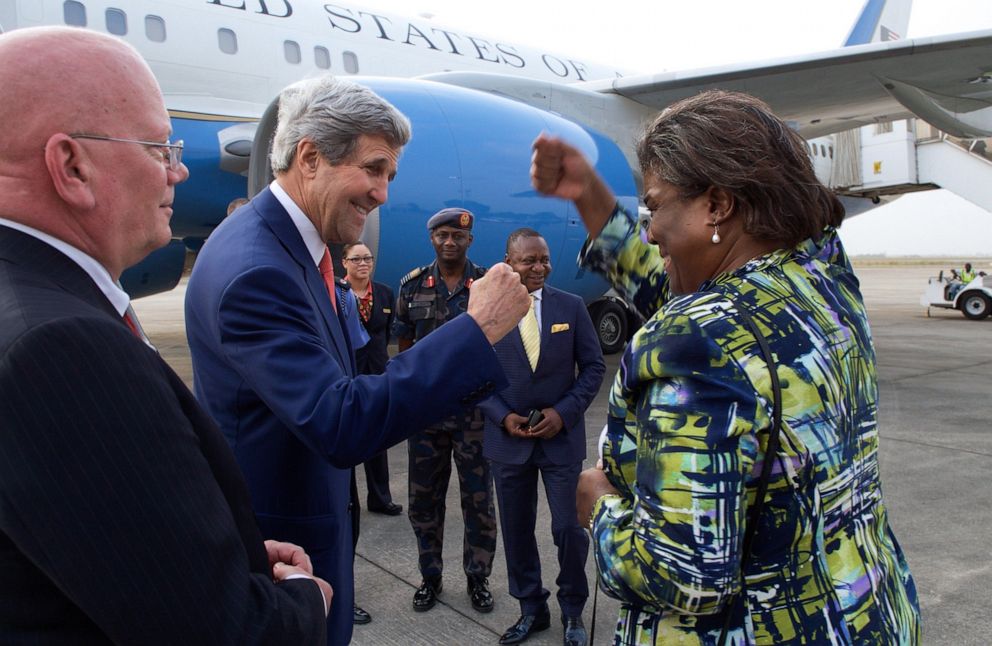
That is likely to change now that Biden has tapped her to join his Cabinet, once again elevating the role of U.N. ambassador to that level. While Nikki Haley was a member of President Donald Trump's Cabinet while serving in the same role, his second envoy Kelly Craft was not, just like envoys under both Bush administrations.
A career Foreign Service officer, she was tapped to serve as U.S. ambassador to Liberia by President George W. Bush and director general of the Foreign Service by President Barack Obama, overseeing recruitment, training, promotions, diversity and more.
Key to her new role, she also served as assistant secretary for African affairs, the top U.S. diplomat for the continent, under Obama. She worked closely with Tony Blinken, then-Deputy secretary of state and now Biden's pick to be secretary, as well as John Kerry, the former top diplomat who will serve as Biden's special envoy for climate.
Blinken, a longtime aide to Biden, brought her into the Biden campaign early on for advice, according to Frazer, and she was tapped to lead Biden's agency review team for the State Department. She also helped brief the president-elect after his win, but before he had access to government resources through the official transition.
She doesn't have the same close relationship that Blinken or Kerry have with the president-elect. But Biden said when announcing her nomination Tuesday, "She'll be cabinet status because I wanted to hear her voice on all the major foreign policy discussions we have."
Over a 35-year career, "LTG," as she's affectionately known, was posted in Switzerland, Pakistan, Nigeria, Jamaica, and elsewhere -- a career that took her around the world and very far from the small corner of Louisiana where she grew up.
The oldest of eight children, she was raised in segregated Baker by her mother and her father, an illiterate laborer whose family lived in town.
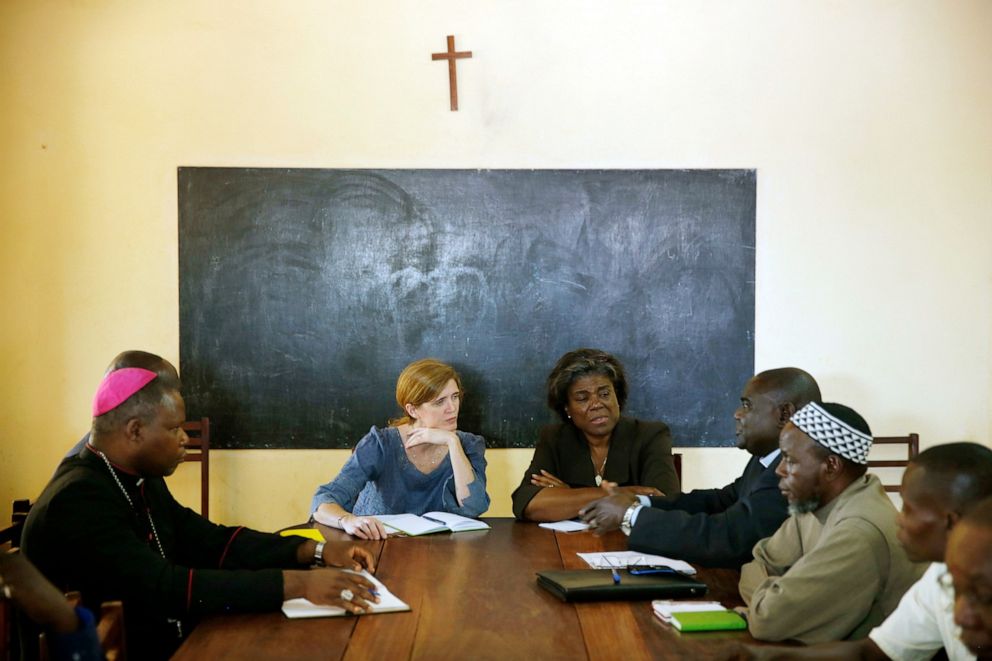
A small town outside Baton Rouge, Baker was terrorized "regularly" by Ku Klux Klan member's burning crosses on Black neighbors' lawns, Thomas-Greenfield said in a 2018 TED Talk. At her segregated high school, with fewer resources than its white counterpart, she still had dedicated teachers, she has said -- and her family's support.
"I didn't have successful, educated role models in my life. But what I did have -- I had the hopes and dreams of my mother, who taught me at a very early age that I could face any challenge or adversity put in my path by being compassionate and being kind," she said during the TED Talk.
She paid homage to her mother in the first tweet she posted after her nomination was announced, writing, "My mother taught me to lead with the power of kindness and compassion to make the world a better place. I've carried that lesson with me throughout my career in Foreign Service -- and, if confirmed, will do the same as Ambassador to the United Nations."
After being the first in her family to graduate high school, she studied political science and pursued a career in academia at Louisiana State University, where she was required to live with other Black female students and still encountered violent racism in the fiery words of David Duke, the KKK leader who spoke regularly on campus.
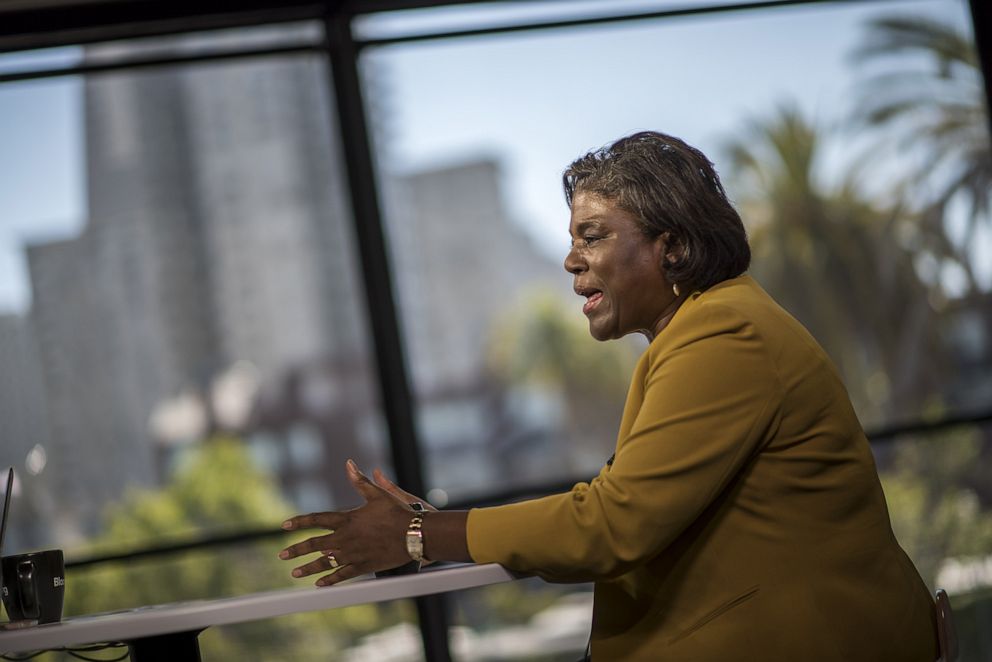
After getting her masters of public administration on a scholarship at the University of Wisconsin, Thomas-Greenfield started working on a Ph.D. and traveled to Liberia for fieldwork, where her interest in a diplomatic career was first sparked.
"You live in the United States as an African American, and we know that we are of African descent, but there was no connection to Africa. It's not like you're an immigrant and you have relatives that you stay in touch with," she told the podcast "Global Dispatches" in 2017. "So for me, going to Africa for the first time, I connected the dot in a sense between the U.S. -- being an American and being an African."
There, she also met an American diplomat named Lafayette Greenfield. He encouraged her to take the Foreign Service exam, which she passed in 1980. But she turned it down, moving to Pennsylvania to teach at Bucknell University after she started work on her dissertation.
Two years later, she changed her mind and dropped the Ph.D. She married Greenfield, who was posted in Washington, and accepted her first post in Jamaica -- her second choice after Burkina Faso, but an easier commute for the newlyweds. A Black woman in a very male and white profession, she began her deep career as an Africa specialist with her second post in Nigeria and third in The Gambia.
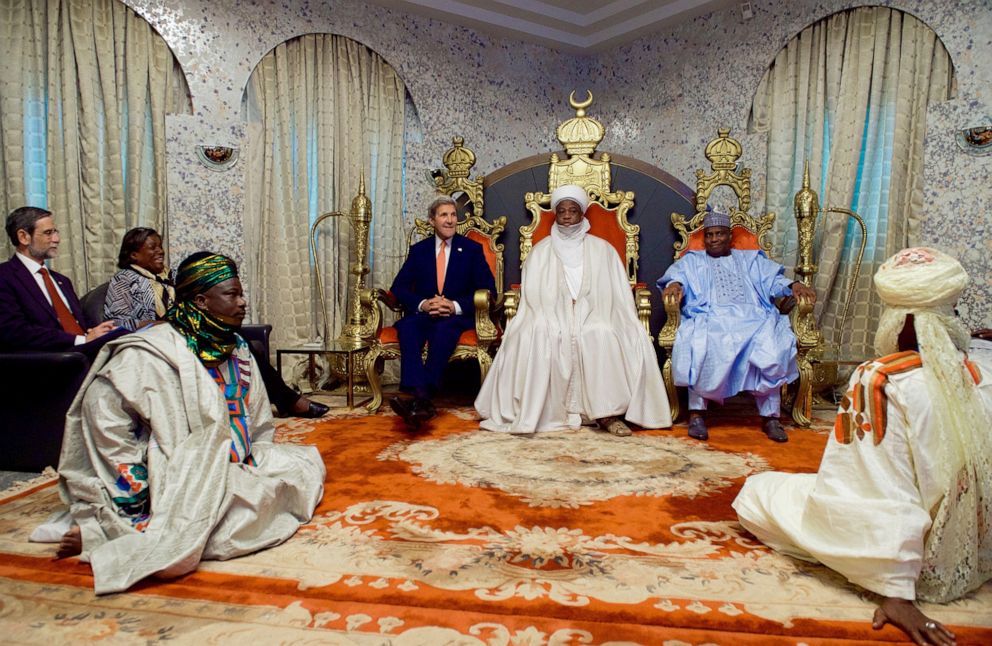
"There's a needle that Black diplomats can thread that other diplomats cannot because of the history of this country," said a second State Department official.
Speaking from her experience as a Black woman gives credibility and depth when urging other countries to improve their human rights record, they said, adding LTG has a special "disarming … code-switching ability."
That ability was crafted over three decades as a Foreign Service officer, whose ranks Thomas-Greenfield is particularly concerned about now, according to Ambassador Deborah Malac. That's why she said yes to the U.N. role, just as she was enjoying retirement and became a new grandmother.
"She had no idea this was on the horizon, and she would have every reason to say, 'No, I don't want to do this.' But she feels deeply about that the need to restore U.S. standing in the world" and repair the cuts to budgets and morale under the Trump administration, said Malac, who retired earlier this year after serving as U.S. ambassador to Uganda and succeeding Thomas-Greenfield as envoy to Liberia.
Thomas-Greenfield has been keenly focused on that, authoring a report in September with Bill Burns, another career ambassador who was reportedly on Biden's shortlist for secretary of state, about transforming and modernizing the agency -- including technological updates, changes in promotions and assignments, expanding career tracks and improving diversity.
For years, LTG has on her own focused on that last issue in particular -- mentoring young diplomats, especially Black and female officials, some of whom described her as a mother or aunt figure.
That work has lifted a younger generation of diplomats, helping steer their careers or find them new postings, even after she retired in 2017. After Trump’s election -- as many chose to leave or were pushed out from State -- she even urged a group of young diplomats to stay in the Foreign Service despite any challenges ahead, according to one official.
After sinking morale and political appointees taking senior postings, her nomination is a boost for career diplomats, according to a former Foreign Service officer who worked closely with her.
"It makes career folks feel seen and makes them feel valued. It makes them feel like their work matters and that there is a path for promotion to the highest levels of government," they told ABC News.
Thomas-Greenfield struggled personally with similar issues at times. In 2007, she sought to be U.S. ambassador to The Gambia, but the assistant secretary for African affairs at the time encouraged her to go for ambassador to Kenya, a more senior role.
"If you really think I'm capable of being ambassador to Kenya, then I want to be ambassador to Liberia," she said, recounting the story on "Global Dispatches," because the country had just emerged from civil wars and the election of Africa's first female president.
Her work in Liberia is still felt, several officials said, with one calling her the people's ambassador.
"There are likely market women across Liberia who are like, 'Yes, she's back. Yes, we love her,'" said the first State Department official, "but I think you'll also see that among heads of state who have had experiences with her and know that she's true and genuine and that her interest is truly in moving the continent forward and having the U.S. engaging in a way that we're able to assist in that."
That warmth and empathy is her greatest strength, according to colleagues, who say she can push U.S. priorities without seeming to scold – a "craft of diplomacy (that) will serve the United States extremely well and, frankly, I'd say better than most of the last U.S. U.N. ambassadors," according to Frazer.
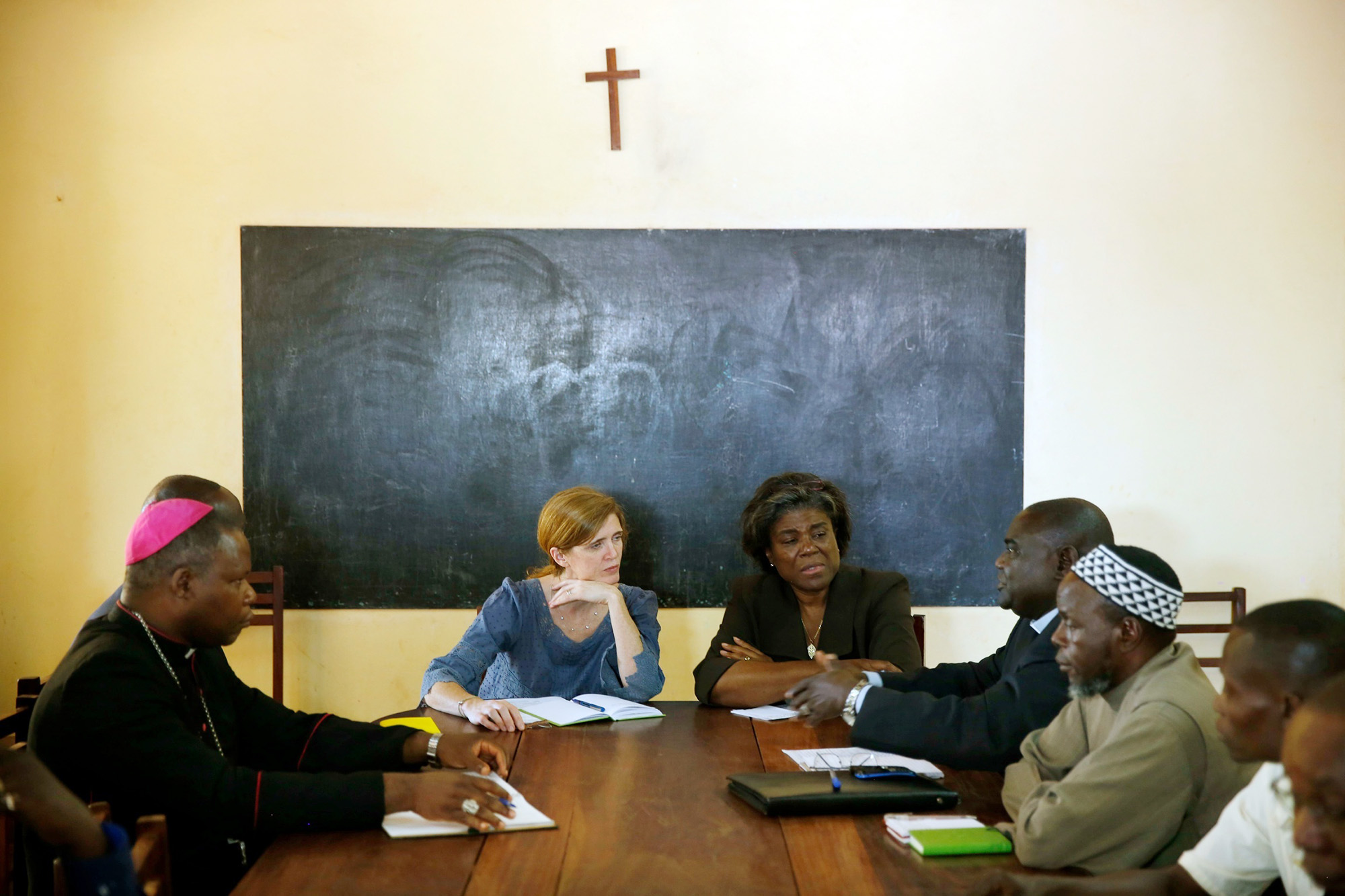
"She just has much more of a common people's touch. … Other diplomats open up very quickly to her and respond very warmly towards her," said Frazer. Even "at the head of state level, I've just seen her put them at ease, and they open up almost immediately, and that's a very unusual ability."
A third State Department official said the same.
"You cannot discount kindness and relatability and just being a caring human being in this gig. … This year and what we've dealt with the last four years should show you that the essence of getting things done is knowing how to work together."
That also seems to be part of why some in the "America First" crowd have criticized her.
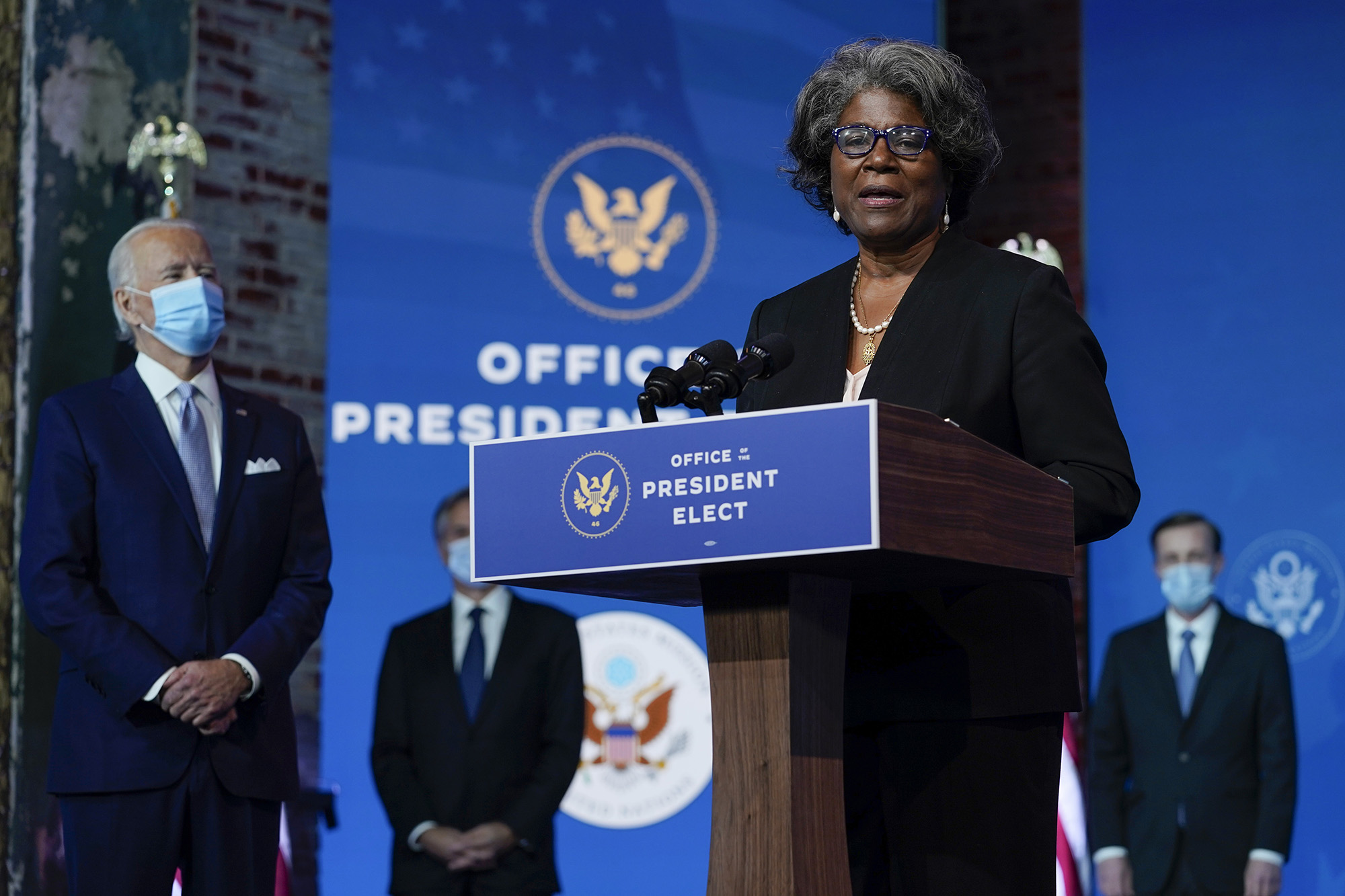
Asked by Fox News about her comment last week that diplomacy and multilateralism are "back," Secretary of State Mike Pompeo shot back, "Where to begin. … Multilateralism for the sake of hanging out with your buddies at a cool cocktail party? That's not in the best interests of the United States."
Pompeo's comments are emblematic of the problem under the Trump administration, several officials said.
"It honestly indicates that he has no idea what diplomacy means and he never invested in understanding the State Department and how we work with others around the world," said the third State Department official. "He's irrelevant."





